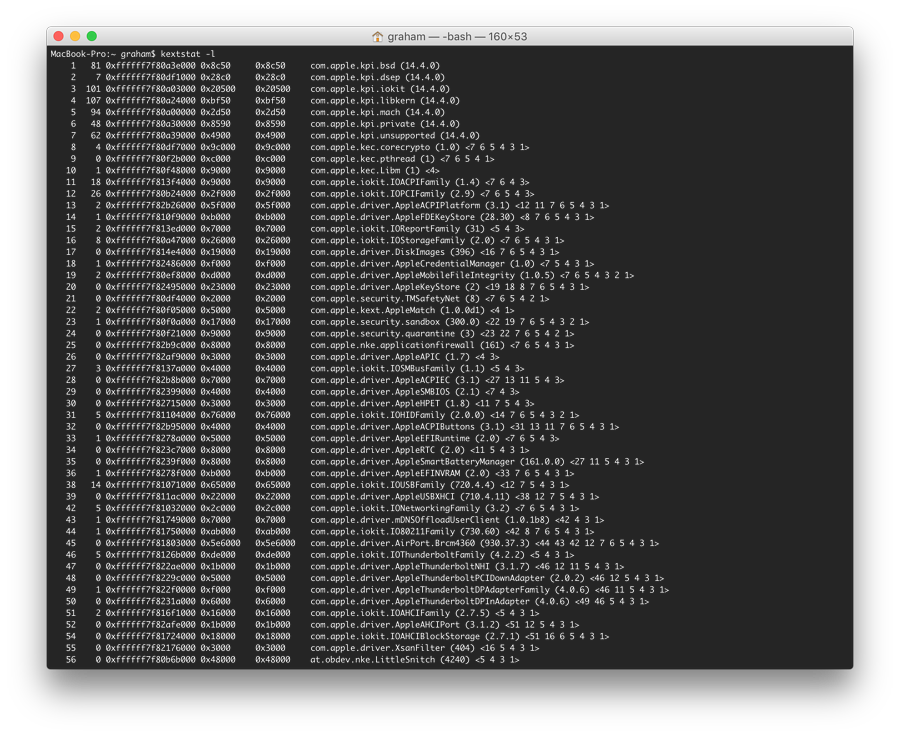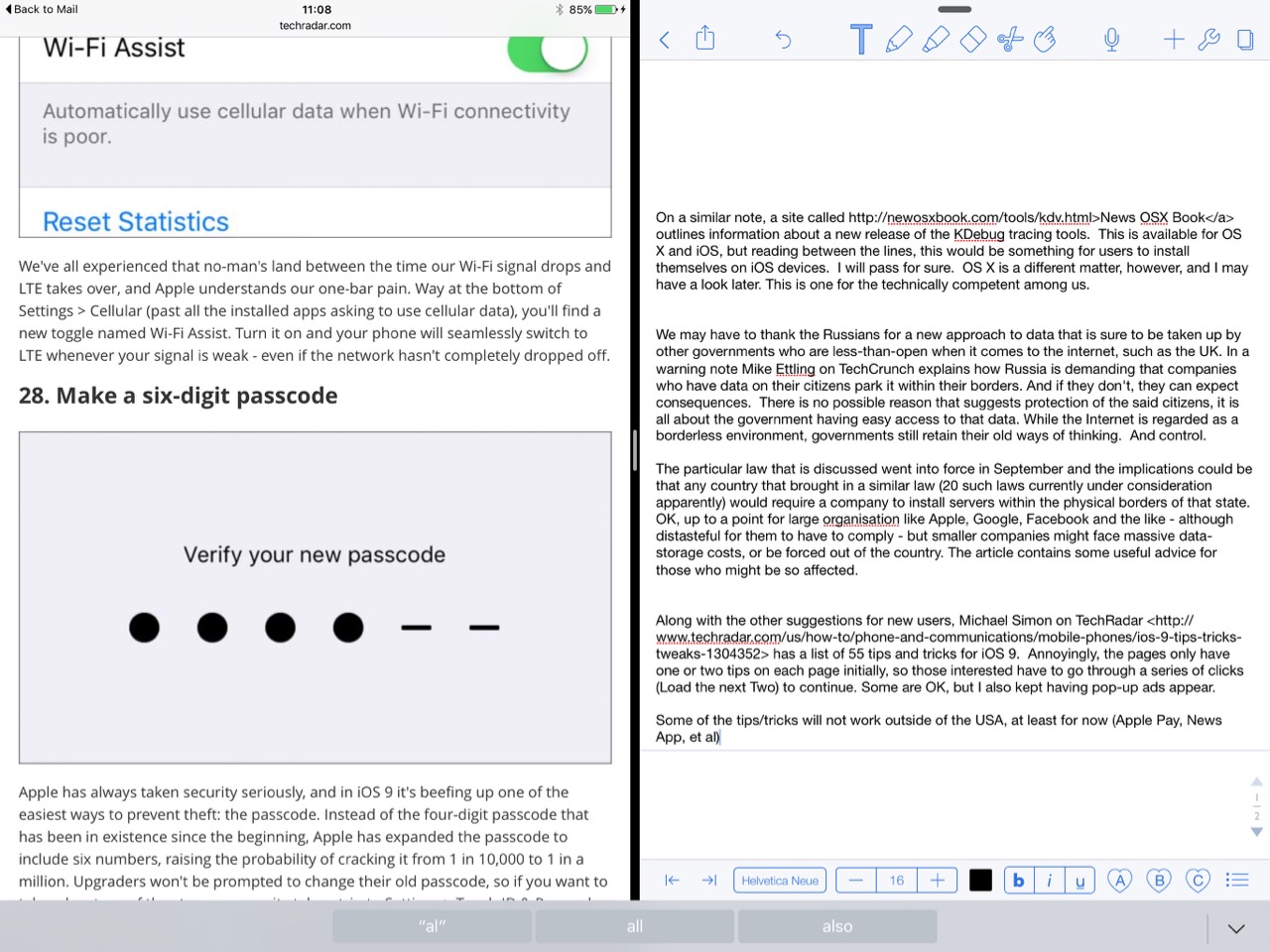Cassandra: Monday Review - Smartphone Software Expertise; Whose Data is it Anyhow; UK Political Hypocrisy (Metadata Cuts Both Ways); Reminders of Unix

AMITIAE - Monday 28 December 2015
|
Cassandra: Monday Review - Smartphone Software Expertise; Whose Data is it Anyhow; UK Political Hypocrisy (Metadata Cuts Both Ways); Reminders of Unix |
 |
|
|
By Graham K. Rogers
The article goes on to cite other woes that the world's number one smartphone maker has like cutting prices to compete with Chinese manufacturers; but it is the software that makes the difference. I guess copying the concepts of the opposition without thinking everything through thoroughly and being able to integrate with other parts of the system, may not be enough, particularly when you don't have control of the OS that runs on your phones. And as a note, despite being the top smartphone maker, the top smartphone profit maker is Apple (James Rogerson, TechRadar and many others). Of course it is sour grapes from the Android fans, with the same news being reported by Matthew Benson who spoiled an-otherwise good analysis of the situaiton by making some cheap digs in the direction of the iPhone, including the nonesensical, "those who want an iPhone are thus forced to either buy one, or else "settle" for an Android alternative. I would remind Benson of the Apple advertising phrase, "If it's not an iPhone, it's not an iPhone" (e.g. AppleInsider). Note also, that while generally higher-priced in most markets, Apple did make some reductions in India earlier this month.

Some commentators seem to think charging is only possible by connecting the Apple Pencil to the iPad Pro and say this is a design fault, even then forgetting that the iPad Pro can be paid down to reduce any risk of accidents. But hey, points need to be scored. There are also a number of other "How to's" for new devices on the main iMore pages.
In an article on Re/Code, Eric Johnson writes about the CEO of Yelp, Jeremy Stoppelman who is "on the warpath" and who is quoted as saying, "Google has just completely lost its mind when it comes to focusing on the user" [well, ra-ra to that]. This comment is in an interview with Kara Swisher which the article links to but some of the highlights in the article, such as "They're doing whatever it takes to preserve that monopoly, and it's sad" and accused Google of stealing Yelp's content.
I had a look at Terminal after I read that and tried a couple of commands like Gopher (I guess I need to be connected to a Unix server), and Lynx, which was the first browser I used when the world wide web went live. It was text only but the immediate and swift access to information in the pre-Windows days was exciting. Those who used Macs (I didn't then) had graphics too. Unfortunately the version of Lynx I have installed will no longer work with the CPU and I don't suppose an update will be coming anytime soon.

I also sent email direct from the command line using the Unix mailx command. It seems to have been sent as several Little Snitch panels asked me about the outgoing data; but it looks as if iCloud blocked it. A second try to my own site was successful. When the Internet was first available here, that (the mailx command, then) was initially how we dealt with all email.
Some more information is available in an abstract of the presentation at the Chaos Communication Conference
The particular law that is discussed went into force in September and the implications could be that any country that brought in a similar law (20 such laws currently under consideration apparently) would require a company to install servers within the physical borders of that state. OK, up to a point for large organisation like Apple, Google, Facebook and the like - although distasteful for them to have to comply - but smaller companies might face massive data-storage costs, or be forced out of the country. The article contains some useful advice for those who might be so affected.
And in a stunning example of hypocrisy, the Home Office has dismissed a request for the browsing history of the lady who is demanding total access to all your communications via the Investigatory Powers Bill: Theresa May (British Home Secretary). The request was said to be as "vexatious" according to a report in BoingBoing by Cory Doctorow. Another case of one rule for them, another for me.
We have decided that your request is vexatious because it places an unreasonable burden on the department, because it has adopted a scattergun approach and seems solely designed for the purpose of 'fishing' for information without any idea of what might be revealed. I thought that was what GCHQ and the NSA were doing with their own scattergun approach to collecting metadata and demonstrates a remarkable lack of sensitivity to those she wants information on: all of us. As a note, the photo I took from the Home Office website, has no embedded copyright details; and the metadata tells me it was taken on 19 May this year, using a Nikon D800 camera, at ISO 640, aperture of 7.1, at a speed of 1/250 sec (manual settings), with a lens at focal length 116mm. The flash was used.

iPad Pro: Split Screen with Safari and Notability
While working I decided to try Apple Music and in the list of music now available for me to stream are several Beatles albums. Takes me back for sure, but I wonder how relevant these tunes are to young people these days (despite their historic importance): you have no idea how the years 1963-1964 were revolutionary in their own way. My own catharsis came at my 14th birthday when a friend brought along the Rolling Stones first album. I rushed out on the Monday following and bought my own copy. Raw music that had the additional plus that my mother hated it. With Keith Richards just 72 last week, they are still a tour de force when performing.

Graham K. Rogers teaches at the Faculty of Engineering, Mahidol University in Thailand. He wrote in the Bangkok Post, Database supplement on IT subjects. For the last seven years of Database he wrote a column on Apple and Macs. He is now continuing that in the Bangkok Post supplement, Life. |
|

For further information, e-mail to
Back to
eXtensions
Back to
Home Page